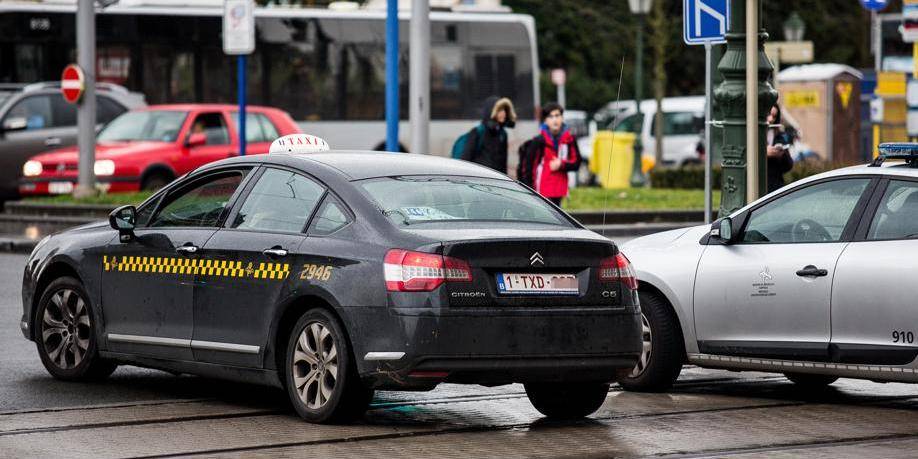The recent decision to ban Uber from the streets of Brussels was very clearly a political move to support the taxi industry and the transport unions. As such, it makes sense to also introduce some extra measures to support the taxi industry further – namely by removing any extra unfair and undue competition from the streets.
To this end, I propose that Minister President Rudi Vervoort should also consider banning other competition to the cities taxis. Namely; cycling, driving and walking. Such measures could just as easily be justified for safety or environmental reasons.
The easiest of all these would be cars. It would be environmentally prudent to ban cars from the streets of Brussels as not only do they pollute our planet by releasing greenhouse gases from their exhaust, but also because they clog up the streets and prevent taxi’s from taking their clients from point A to B in good time.
Further still are the safety implications, in 2019 there were 3,924 traffic accidents in Brussels, and 37,699 in the entire of Belgium. It’s clear that people cannot be trusted to own and drive their own cars, so perhaps Minister President Vervoort should consider banning them altogether for the sake of public safety.
Equally it’s clear that bicycles are a hazard to the public. Cyclists make up 15% of road traffic accident victims. In 2019, a total of 95 cyclists were killed in accidents. It’s clear that people cannot be trusted to cycle safely. What’s more is that they are increasingly becoming a nuisance to taxi drivers, with more and more road space in the city being selfishly given over to cyclists. Which means that there are less roads for taxi’s to stop and pick people up from.
Finally, in order to well and truly break the competitive racket that is preventing taxi drivers from doing their jobs, the Brussels Regional Government should consider implementing new regulations to ban walking within the city. Pedestrians are increasingly taking over the roads, with areas such as Grand Place, Rue Neuve, and Boulevard Anspach being turned over the two footed hoards – when before it was the free domain of the automobile.
Of course none of these suggestions should be taken seriously, and indeed nor should the protectionist ban on Uber either. There are serious points to be made, both of the image of the city and of the ease of use.
In the first instance, the banning of Uber has made Brussels look like a technophobic city, afraid to embrace the opportunities afforded too it by the fourth industrial revolution. Already Brussels lags behind many other global cities when it comes to the fourth industrial revolution.
According to the Consumer Choice Centre, Brussels ranked lower than Tallin, Riga, Vilnius, Tbilisi, Moscow, Kyiv, Warsaw and Helsinki in their sharing economy index.
The second point to make is the way in which the ban disproportionally affects younger denizens of Brussels – millennials and zoomers in particular. Increasingly young people are turning away from driving, with those of us who live in the city centre not seeing the need to own a car at all. Using Uber was an easy, and much cheaper, way of getting around, especially to those places which are not serviced by Brussels very limited mass transit system.
Uber could pick you up from any neighbourhood, which is a bonus when quite often there aren’t conventional taxis around – especially late at night/early in the morning.
By way of a recent example. For me to get to a recent hospital appointment, I had a choice between a taxi, an Uber and metro. The taxi would have cost me €20 more than the Uber and had me arrive in the same amount of time. Whilst the metro would have been cheaper, it would have added an extra 20 minutes to my journey – additionally it would not have been socially distanced.
In pre-COVID times, Uber was also the most convenient route for most people to get to and from the airport as well. Quicker than the train, and much more convenient when carrying large bags, whilst at the same time an average €40 cheaper than the taxis. Visitors to Brussels in the future will now be greeted by a €60 taxi fee when they want to travel to the city centre – not a very welcoming prospect.
The ban on Uber was, and still is, an idiotic move by the government of Brussels. The city now looks technologically backwards, expensive and consumer unfriendly. The regional government should seriously reconsider the ban, or at the very least liberalise the licence system to allow more competition in the market outside of the state monopoly. If former soviet states can do it, then so can liberal Belgium.

